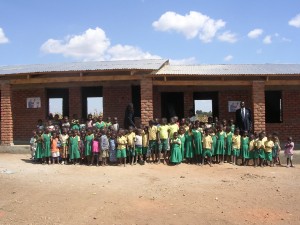
BY Joseph Olanyo
Kampala, Uganda – As Uganda’s fate on the Biotechnology Bill waits parliamentary approval six years since it was tabled, the country has been listed as a potential ground for commercial production of Genetically Modified (GM) crops.
According to an annual report by the International Service for the Acquisition of Agri-biotech Applications (ISAAA), Uganda, Tanzania, Mali, Togo, Nigeria, and Malawi could all commence with the production of GM crops within the next few years.
The seven African nations are expected to start with the commercial production of genetically modified crops by 2015.
GM seed creation involves the insertion of genes for specific traits into a plant’s DNA. Proponents of biotech crops say it leads to increased agricultural productivity with less labour and pesticides required.
Only three African countries -South Africa, Burkina Faso and Egypt are currently producing crops using biotechnology. South Africa is the leading producer on the continent with 2.2 million hectares under cultivation in 2010.
“In no continent is the need for biotech crops more urgent, and their adoption and acceptance more challenging, than Africa,” says Clive James, founder and chairman of ISAAA.
Reports show that during 2010, the West African nation of Burkina Faso had the world’s second largest proportional increase in biotech crops cultivated with growth of 126%.
“The impressive increase of over 100% in biotechnology cotton farmed by 80,000 farmers in 2010 in Burkina Faso is of strategic importance for neighbouring countries, like Mali and Togo, and more broadly for the African continent,” said James. Biotech cotton contains a gene from Bacillus thuringiensis, or biotech, a common bacterium found in soil. The gene helps the plants produce proteins that are toxic to certain insects.
According to James, the three African countries currently producing biotech crops should be role models within their respective regions on the continent.
Kenya, East Africa’s most advanced country in terms of GMO research, signed the biosafety Bill into law in 2009 with crops engineered to be insect or virus-resistant.
Researchers contend that any biosafety law eventually adopted in Kenya should also help neighbouring countries optimise their own biotechnological practices. However, many like Uganda, are still relying on a ‘wait and see’ approach to biosafety regulation.
Although the country’s government approved a GM policy in 2005, it has yet to adopt a law regulating the use of genetically modified organisms. This law is a prerequisite for the improved crops to reach the country’s farmers.

.jpeg&w=60&q=100&h=60)




.jpeg&w=60&q=100&h=60)





